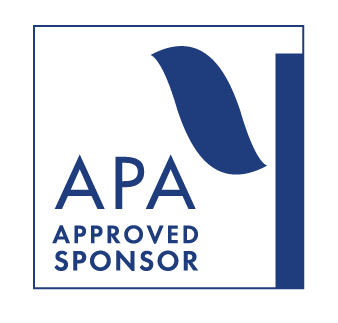
Producer: Vermont Psychological Association
Insomnia is widely recognized to be the most common sleep problem and is also a leading complaint in primary care settings. The consequences and morbidity associated with chronic insomnia can be substantial across several domains and can include increased health care utilization, impaired quality of life, increased risk of falls and hip fractures, increased risk of medical and psychiatric disorders, and ultimately worse outcomes for all co-morbid disorders.
Effective treatment of insomnia not only improves sleep quality and daytime functioning, but also may improve comorbid conditions such as chronic pain and depression. In particular, cognitive-behavioral treatments for insomnia have been shown to be of equal or greater effectiveness when compared to sedative hypnotic medication.
This workshop is designed to provide clinical and research faculty from multiple disciplines the core elements of cognitive-behavioral treatment for insomnia. The course starts by grounding participants in the basics of sleep medicine that undergird the practice of CBT-I. It goes on to present systematic, empirically validated treatment methods and essential information about the etiology and evolution of chronic insomnia necessary to inform assessment, diagnosis, treatment, and the handling of treatment resistance.
Please note: You must attend the ENTIRE workshop to receive continuing education credit. Partial credit will not be awarded. Please do not schedule appointments or other obligations that will interfere with your attendance.
There is a $25 cancellation fee if you cancel your reservation prior to the date of the workshop; we cannot provide refunds or vouchers for cancellations on or after the date of the workshop.
 The Vermont Psychological Association is approved by the American Psychological Association to sponsor live continuing education for psychologists. The Vermont Psychological Association maintains responsibility for its programs and their content.
The Vermont Psychological Association is approved by the American Psychological Association to sponsor live continuing education for psychologists. The Vermont Psychological Association maintains responsibility for its programs and their content.
Completion of this course earns 6.5 continuing education credits. Psychologists licensed in states whose licensing board approves continuing education offered by APA-approved sponsors may earn continuing education credits for this course.
Courses sponsored by the Vermont Psychological Association are pre-approved for continuing education for psychologists by the Vermont Board of Psychological Examiners. This course qualifies for 6.5 continuing education credits.
Continuing education courses sponsored by the Vermont Psychological Association are pre-approved by the Vermont Office of Professional Regulation for continuing education credit for licensed independent clinical social workers in Vermont. This course provides 6.5 CE credits for Vermont licensing.
This course has been approved for continuing education credit by the Vermont Board of Allied Mental Health and earns 6.5 continuing education credits.
The Vermont Psychological Association is approved by the American Psychological Association to offer continuing education for psychologists. These credits are also accepted by the New Hampshire Board of Mental Health Practice for clinical social workers licensed in New Hampshire, as provided in Mhp 402.02(b)(1). The course qualifies for 6.5 continuing education credits.
The Vermont Psychological Association is approved by the American Psychological Association to offer continuing education for psychologists. These credits are also accepted by the New Hampshire Board of Mental Health Practice for clinical mental health counselors licensed in New Hampshire, as provided in Mhp 402.02(b)(1). The course qualifies for mandated credit types as follows:
Ethics:
Suicide Prevention:
The Vermont Psychological Association is approved to offer continuing education to licensed clinical social workers by the Vermont Office of Professional Regulation, and is approved by the American Psychological Association to offer continuing education to psychologists. This course thus qualifies for 7.8 continuing education credits for Massachusetts licensed clinical social workers in Massachusetts under 258 C.M.R. §§ 31.04(2)(d), 31.04(5).
The Vermont Psychological Association is approved to offer continuing education to licensed clinical social workers by the Vermont Office of Professional Regulation, and is approved by the American Psychological Association to offer continuing education to psychologists. This course thus qualifies for 7.8 continuing education credits for Massachusetts licensed certified social workers in Massachusetts under 258 C.M.R. §§ 31.04(2)(d), 31.04(5).
This course has been approved by the Massachusetts Mental Health Counselors Association for continuing education credit for licensed mental health counselors in Massachusetts. MaMHCA Approval # 20-0612
The Vermont Psychological Association is approved by the American Psychological Association as a continuing education sponsor for psychologists. Continuing education credit in the amount of 6 credits earned in this course may be accepted by the Connecticut Department of Public Health for licensed clinical social workers under Conn. Agencies Regs. § 20-195o(c)-3.
This course is pre-approved for credit for Connecticut licensed professional counselors under Conn. Agencies Regs § 20-195cc-3(a)(1). This course qualifies for 6 continuing education credits.
This course is pre-approved for credit for Connecticut licensed professional counselors under Conn. Agencies Regs § 20-195cc-3(a)(1). This course qualifies for 6.5 continuing education credits.
|
Research References
(196 KB)
A selection of research, books, and other references for material covered in course. |
2 Pages | Available after Purchase |
| Presentation Slides (14.6 MB) | 80 Pages | Available after Purchase |

Dr. Donn Posner is the Founder and President of Sleepwell Consultants and has been consulting to organizations and individuals on a wide variety of sleep health issues including insomnia, circadian dysrhythmia, CPAP adherence, and parasomnias. He is also currently an Adjunct Clinical Associate Professor in the Department of Psychiatry and Behavioral Sciences at the Stanford University School of Medicine and a consulting psychologist for the Palo Alto VA. Dr. Posner is currently working on a number of grants exploring the effects of CBT-I in Gulf War veterans, and veterans with insomnia and Mild Traumatic Brain Injury. He is also working on a pilot aimed at using CBT-I techniques to decrease fatigue in breast cancer survivors by increasing total sleep time.
Prior to this he spent 25 years serving as the Director of Behavioral Sleep Medicine for the Sleep Disorders Center of Lifespan Hospitals, and was a Clinical Associate Professor in the Department of Psychiatry and Human Behavior at the Warren Alpert School of Medicine at Brown University. Dr. Posner is a member of the American Academy of Sleep Medicine and is one of the first Certified Behavioral Sleep Medicine specialists recognized by that group. He is also a founding member of the Society of Behavioral Sleep Medicine and he has also now achieved the status of Diplomate with the Board of Behavioral Sleep Medicine (BBSM).
Define the basics of sleep nomenclature including sleep period, phase, continuity, and architecture.
Define and distinguish acute insomnia from insomnia disorder and discuss the importance of treating the chronic form as a specifically targeted comorbidity.
Cite the evidence for the efficacy of CBT-I for both primary and co-morbid insomnia disorder.
Explain the Spielman model of insomnia and basics of sleep regulation, and demonstrate how to utilize these concepts in the deployment of CBT-I.
Explain how to obtain useable patient sleep diary data, and how to analyze the data for use in the course of CBT-I treatment.
Apply the techniques of stimulus control and sleep restriction therapy to the treatment of chronic insomnia.
Apply the techniques of sleep hygiene education and cognitive therapeutic strategies to the treatment of chronic insomnia.
Apply a decision-making algorithm to case conceptualization, and explain the steps necessary to aide in good relapse prevention.